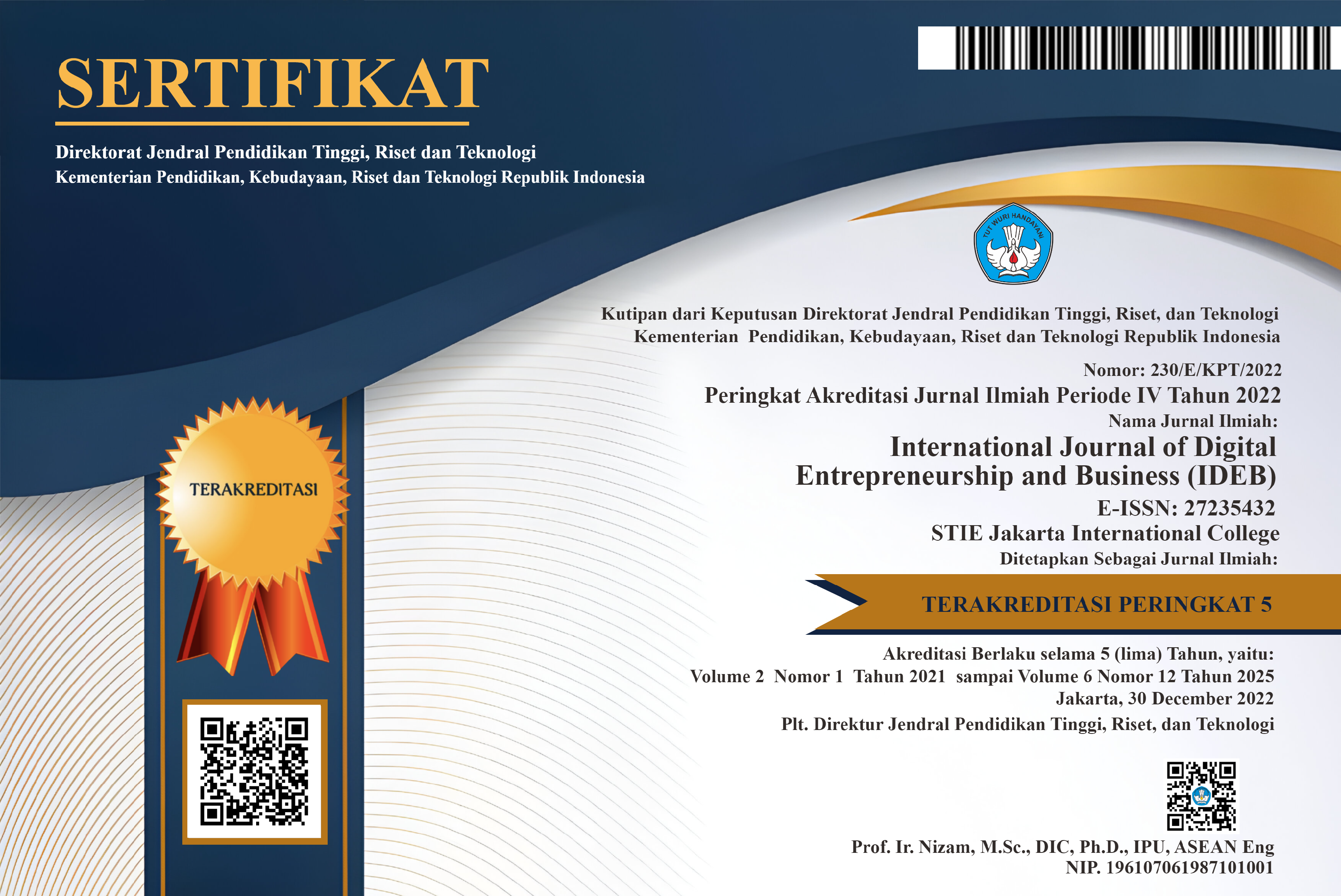The Effects of Thin Capitalization, Capital Intensity on Tax Avoidance With The Use of Tax Havens Country as a Moderating Variable
DOI:
https://doi.org/10.52238/ideb.v6i1.199Keywords:
Indonesia, Thin Capitalization, Capital Intensity, Tax Avoidance, Thin Capitalization, Capital Intensity, Tax Avoidance, Tax Havens.Abstract
The purpose of this study was to determine the effect of thin capitalization, capital intensity on tax avoidance with the use of tax havens as a moderating variable. This study uses a quantitative approach with a population with a sample of energy sector companies listed on the Indonesia Stock Exchange from 2019 to 2023. The sampling technique used purposive sampling and obtained 80 companies as samples. This study uses Partial Least Square or commonly known as variant-based PLS and the analysis used is Structural Equation Modeling (PLS-SEM). Data is processed through SmartPLS software. The results showed that thin capitalization has no significant (negative) effect on tax avoidance, while capital intensity has a significant positive effect on tax avoidance. Further research shows that tax havens cannot moderate the effect of thin capitalization on tax avoidance, but tax havens strengthen the effect of capital intensity on tax avoidance.
Downloads
Downloads
Published
How to Cite
Issue
Section
License
Copyright (c) 2025 Rut Cahyo Ningrum

This work is licensed under a Creative Commons Attribution 4.0 International License.
 Abstract viewed = 170 times
Abstract viewed = 170 times












